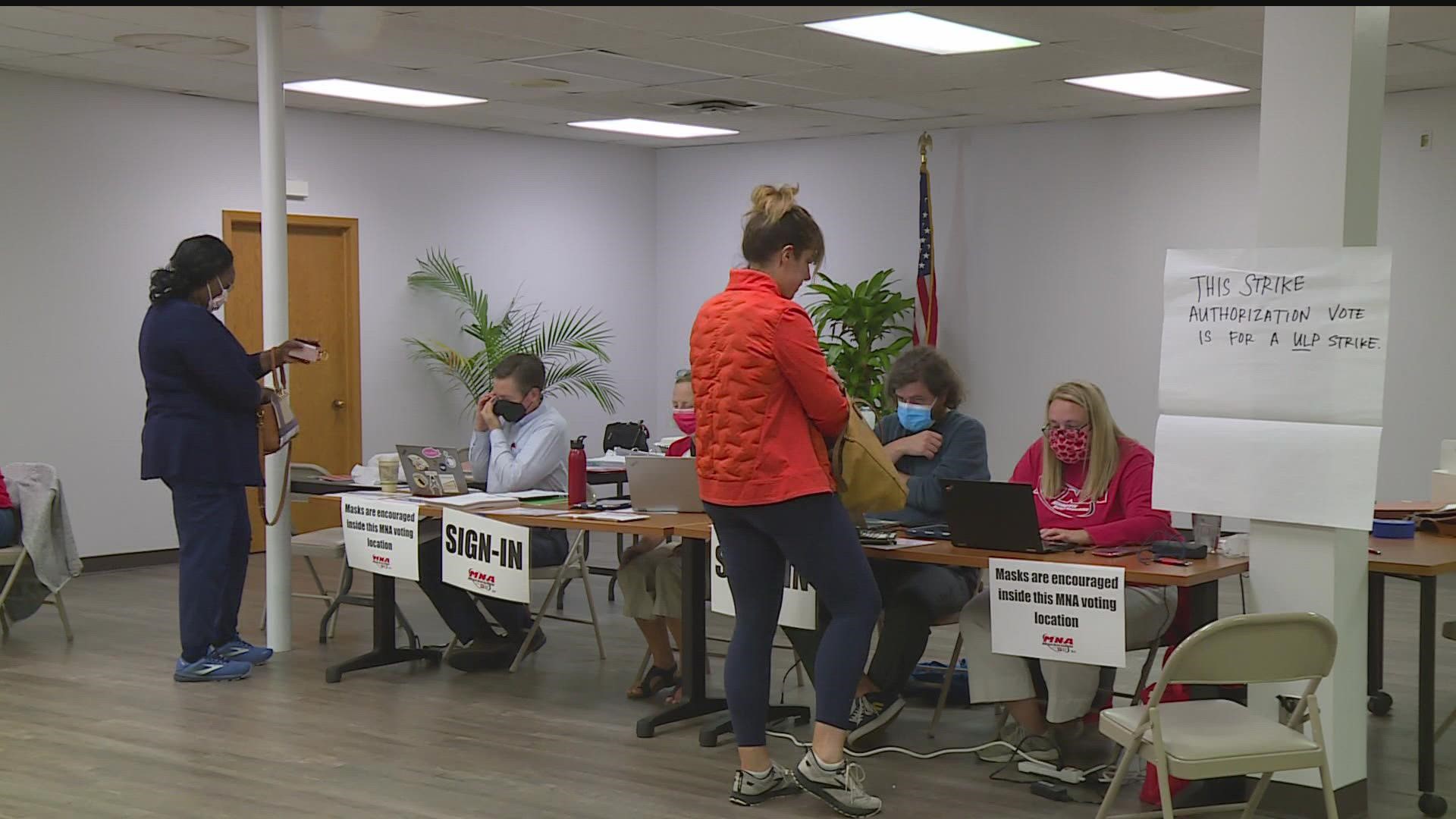ST PAUL, Minn. — On Thursday, some hospital leaders and the Minnesota Nurses Association (MNA) will be back at the bargaining table after voting Monday to authorize a strike.
And while that doesn't mean they're hitting the picket line just yet, KARE 11 is looking into how hospitals will protect patient care if it does happen.
It's an important question because up to 15,000 nurses are in the union and if they strike, it will be one of the largest nurses strikes in U.S. history, according to the MNA.
There's data that proves nurses strikes can increase mortality and hospital readmissions, but people who have done this before, like Maureen May, can also share stories of success.
Two years ago, May joined other nurses north of Philadelphia in one the Pennsylvania's latest strikes. But it was in 2010 that she participated in what was one of the longest.
For 28 days, 1,500 nurses and other professionals at Temple University Hospital went on strike - a decision that May says they don't take lightly, whether in Pennsylvania or Minnesota.
"They're sending a message, not just to the administration, they're sending a message to the public that we need you to support us so we can take care of you," said May who has been a registered nurse for 37 years and president of the union called PASNAP.
Members of the MNA voted to authorize a strike on Monday, vying for wage increases, better staffing and safer conditions after months of negotiations with hospital leaders.
The potential strike impacts seven health systems between the Twin Cities and Duluth, including M Health Fairview and St. Luke's.
"Trust us," said May. "We're telling you this crisis isn't happening now, this has been happening and has been a problem long before COVID."
Despite ongoing issues, May says what they gained from striking 12 years ago, including a new contract, was worth it then — and it is now for nurses in similar situations.
"Philadelphia watched us go on strike and they learned you can have a voice and you can speak for the patients," said May. "We still fight today, but there was an awful lot of respect that was gained from that strike."
Before a work stoppage takes place, the union is required to give hospitals a 10-day notice. When we pressed those hospitals about how prepared they are for a strike, they gave few details about plans to specifically protect patients.
Here are their statements in full.
"We are proud to recognize the important contributions of our nurses and all employees by offering competitive compensation packages and exceptional benefits, while also striving to keep healthcare affordable for our community. We believe our offer of a 10.25% wage increase over 3 years is fair and reasonable. MNA continues asking for a 36.5% wage increase over 3 years. We will again ask MNA to agree to inviting a mediator to join us at the table. Mediators are trained professionals who can assist in successfully negotiating contracts when the two sides are far apart. We want to reassure our patients that we are actively planning. If MNA chooses to strike, they are required to give us at least a 10-day notice before the actual strike. At that point we will finalize our plans, so we will be ready and able to continue providing safe, quality care for our community during any work stoppage.
- St. Luke’s
Our hospitals are open and will remain open to serve the community. Any strike-related actions by the nurses' union would require a 10-day warning. We will continue our efforts at the negotiating table to reach reasonable agreements and avoid any actions that would interrupt patient care. We assume the union will do the same. We remain committed to serving our community and keeping our focus on the patients we serve.
- Twin Cities Hospitals Group
A total of 1,300 Essentia Health nurses in the Twin Ports area are represented by the Minnesota Nurses Association. Like any responsible health care provider, we prepare for a wide range of contingencies to ensure we can maintain our high standards of patient care in any circumstance. While we are planning for all our facilities to remain open, there may be temporary impacts to some services. We will work with patients to notify them as soon as possible and reschedule services if necessary. We believe we have a shared responsibility to provide quality care to our patients and will continue to negotiate in good faith toward an agreement that benefits our nurses and provides expert, compassionate care for our patients and communities.
- Essentia Health
Allina Health’s priority remains providing high quality care to our patients. We have plans in place to ensure we are providing the best care and services for our community for the duration of any work stoppage. We know progress on a contract agreement can only happen at the bargaining table and we look forward negotiating with the union again on Aug. 30. It is our hope we can move closer to a contract agreement that is fair and recognizes the priorities of both parties and avoid a work stoppage that doesn’t benefit our patients, care teams and communities.
- Allina Health
Watch more local news:
Watch the latest local news from the Twin Cities in our YouTube playlist:

